
When it comes to personal financial matters, it pays to have the right expert on your side. However, choosing a personal financial expert can be an intimidating process. With so many different professionals, how do you decide who fits your needs best? The answer requires careful consideration and research. By understanding the qualities you need to look for, the background and experience of each expert, and the services available, you can confidently make the right choice for your specific needs.
When researching personal finance experts, there are a few key things to consider to help you choose the right one for you:
- Credentials and qualifications: Look for experts with relevant credentials, such as a CFP (Certified Financial Planner) or CFA (Chartered Financial Analyst) designation, which indicate that they have completed a certain level of education and passed a rigorous exam in the field of personal finance.
- Experience and track record: Look for experts with a proven track record of helping clients achieve their financial goals and who have experience working with clients in similar situations to yours. Fortunately, all the 20 experts mentioned in this article have long careers, most bypassing 20 years of experience in this field.
- Philosophy and approach: Research the expert’s philosophy and approach to personal finance and see if it aligns with your values and goals.
- Reviews and testimonials (mainly negative): I included a section named “What is this expert mostly criticized about” where it was applicable. There were some cases where I couldn’t find anything noteworthy.
- Specialization: Some experts may have areas of specialization, such as retirement planning, investment management, or debt management. Consider if their area of expertise aligns with your specific needs.
- Communication style: It’s essential to understand how the expert communicates and if the style aligns with your own.
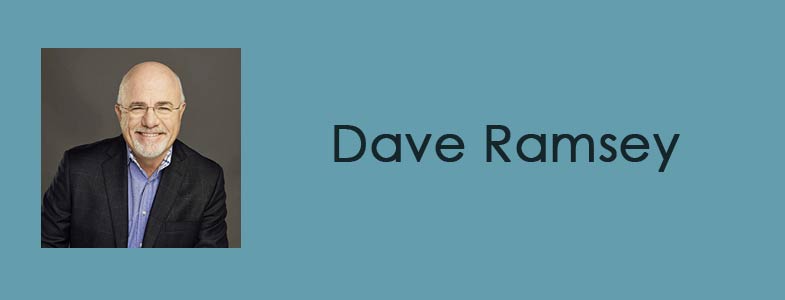
- Dave Ramsey: personal finance expert, radio host, and author known for his “Baby Steps” approach to budgeting and debt elimination.
- Why should you listen to Dave Ramsey?
- He has a proven track record: Dave Ramsey has provided financial advice for over 25 years and has helped many people get out of debt and build wealth.
- He has a clear and actionable approach: Dave Ramsey’s “Baby Steps” approach to budgeting and personal finance is easy to understand and follow and provides a step-by-step plan for improving your finances.
- He emphasizes the importance of living below your means: Dave Ramsey encourages people to live within their means and avoid unnecessary spending, a crucial component of budgeting and financial success.
- He strongly advocates for paying off debt: Dave Ramsey is a vocal proponent of paying off debt and avoiding excessive borrowing, which can be a significant obstacle to achieving financial success.
- He is easy to access: Dave Ramsey provides his advice through various mediums, including a nationally syndicated radio show, books, podcasts, online resources, and more, making it easy for people to access his advice and follow his guidance.
- What is Dave Ramsey mostly criticized about?
- Some people believe his advice is too conservative and may not be appropriate for more aggressive investors. These critics argue that his advice needs to be more focused on paying off debt and may not be appropriate for people who want to invest their money.
- Some people criticize Dave Ramsey for his strong emphasis on budgeting, and some experts say that his advice on budgeting may be overly restrictive and unrealistic for some people.
- Other people also believe that Dave Ramsey’s advice is too focused on the religious aspect, which some see as divisive.
- Why should you listen to Dave Ramsey?

- Suze Orman: personal finance expert, author, and television host known for her advice on budgeting, saving, and investing.
- Why should you listen to Suze Orman?
- She has a wealth of experience and knowledge: Suze Orman has provided financial advice for over 40 years and is considered a leading authority on personal finance.
- She has a clear and actionable approach and emphasizes the importance of understanding your finances: Suze Orman encourages people to take control of their finances by understanding their spending habits, identifying their financial goals, and creating a budget to reach them.
- She is a strong advocate for financial empowerment for women. Suze Orman is a vocal proponent of the importance of financial empowerment for women and provides advice and resources to help women take control of their finances.
- She is a best-selling author. Suze Orman has written several books on budgeting and personal finance, including “Women & Money: Owning the Power to Control Your Destiny,” a New York Times Bestseller.
- She hosts her TV show, Suze Orman Show, which has been on the air for 13 years and provides educational and informative content on personal finance and budgeting.
- What is Suze Orman mostly criticized about?
- Some believe her advice is too simplistic and may not apply to more complex financial situations.
- Other critics argue that her advice is too focused on consumerism and may not be appropriate for people who want to live more frugally.
- Some people criticize Suze Orman for her strong emphasis on credit scores, and some experts say that her credit advice may be misleading or overly simplistic.
- Some people believe that her advice is too focused on the American financial market and may not apply to people in other countries.
- Why should you listen to Suze Orman?

- Rachel Cruze: personal finance expert, author, and daughter of Dave Ramsey, focusing on budgeting and money management for young adults.
- Why should you listen to Rachel Cruze:
- She is the daughter of Dave Ramsey, and he has trained her to teach his financial principles; Dave Ramsey likely has a favorable opinion of Rachel Cruze and her work as a personal finance expert. Dave Ramsey has frequently mentioned her on his radio show and podcast, written the foreword to her books, and has her as a guest on his show, where they discuss financial topics together. He has also said that Rachel’s teachings are an extension of his philosophy and that she has a unique ability to relate to the younger generation. He believes she is a great teacher and is proud of her work to help people improve their financial situation.
- She focuses on budgeting and money management for young adults: Rachel Cruze specializes in helping young adults understand the basics of budgeting, saving money, and managing debt.
- She emphasizes the importance of building good money habits and encourages people to establish good habits that will serve them well.
- She strongly advocates living below your means: Rachel Cruze encourages people to live within their means and avoid unnecessary spending, a critical component of budgeting and financial success.
- She is the author of several books on budgeting and money management: Rachel Cruze has written several books on budgeting personal finance, including “Love Your Life, Not Theirs: 7 Money Habits for Living the Life You Want”
- She is a speaker: Rachel Cruze frequently speaks at events and conferences nationwide, sharing her finance expertise and inspiring others to take control of their finances.
- What is Rachel Cruze most frequently criticized about?
- Her work mainly focuses on budgeting, saving money, and managing debt. As such, some people may criticize her advice as being too basic or not providing enough information for more advanced financial strategies.
- As she is the daughter of Dave Ramsey, her teachings are an extension of his philosophy, and she has a unique ability to relate to the younger generation. Some critics argue that her advice may not apply to everyone’s financial situation, as it may be geared towards a specific demographic, such as young adults.
- Why should you listen to Rachel Cruze:
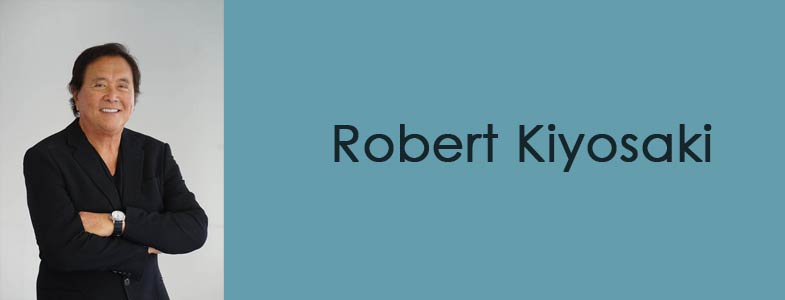
- Robert Kiyosaki: entrepreneur, author, and speaker, best known for his book “Rich Dad Poor Dad,” which focuses on budgeting and financial literacy.
- Why should you listen to Robert Kiyosaki?
- Robert Kiyosaki believes that traditional financial education is inadequate and that people must take responsibility for their financial education and decision-making. He argues that traditional financial education focuses too much on saving money and living frugally rather than creating cash flow through investments and building wealth. He believes that traditional financial education does not provide enough information on creating multiple income streams, managing cash flow, and investing in assets that will appreciate over time.
- He is best known for his book “Rich Dad Poor Dad”: The book, which has sold millions of copies worldwide, is a personal finance classic and has been translated into dozens of languages. It highlights the importance of financial literacy and how to achieve financial independence through investing and entrepreneurship.
- Robert Kiyosaki is a popular speaker who regularly talks about personal finance, entrepreneurship, and investing. He uses his experiences and knowledge to inspire and motivate people to take control of their financial lives.
- He provides financial education through various mediums, including books, online resources, board games, and more, making it easy for people to access his advice and follow his guidance.
- What is Robert Kiyosaki most frequently criticized about?
- On the other hand, some critics argue that his teachings may be too simplistic and that some of his advice can be unrealistic or not applicable to everyone’s financial situation. Critics also point out that some financial strategies he promotes, such as real estate investing, can be risky and unsuitable for everyone.
- Kiyosaki emphasizes the importance of cash flow and how to create it through investments, such as real estate and businesses, rather than relying on a traditional job or savings account. He argues that cash flow is more important than net worth and that people should focus on creating multiple income streams to achieve financial freedom. This advice can be seen as controversial because it may be perceived as advocating for taking on more debt and risk. Not everyone may have the resources or inclination to pursue real estate or business investments. Furthermore, some financial experts have said that some of his statements on taxes and personal finance are inaccurate and may be misleading.
- Why should you listen to Robert Kiyosaki?

- Clark Howard: personal finance expert and radio host, providing advice on budgeting, saving money, and managing debt.
- Why should you listen to Clark Howard?
- Clark Howard has provided financial advice for over 30 years and is considered a leading authority on personal finance. He provides financial education through various mediums, including books, online resources, and more, making it easy for people to access his advice and follow his guidance.
- He provides a balanced approach to personal finance, focusing on living below your means, protecting your assets, and being a savvy consumer. He encourages people to be informed consumers and make smart financial decisions by providing tips and advice on saving money on everyday purchases. He has a clear and actionable approach with easy-to-understand advice that can be applied to your financial situation.
- He strongly advocates for consumer rights and is known for providing tips and advice on protecting yourself from scams, fraud, and identity theft.
- He is a popular radio host: Clark Howard has a nationally syndicated radio show where he provides advice and answers listeners’ questions.
- What is Clark Howard most frequently criticized about?
- Some people also believe that Clark Howard’s advice is too focused on the frugal lifestyle, which some see as restrictive.
- Some critics argue that his advice is not always suitable for people with lower incomes or struggling financially.
- Others have suggested that some of his advice on his radio show or website may not be appropriate for people with specific financial or complex financial situations.
- Some critics argue that he does not always provide enough detailed or specific information on implementing his advice.
- Why should you listen to Clark Howard?
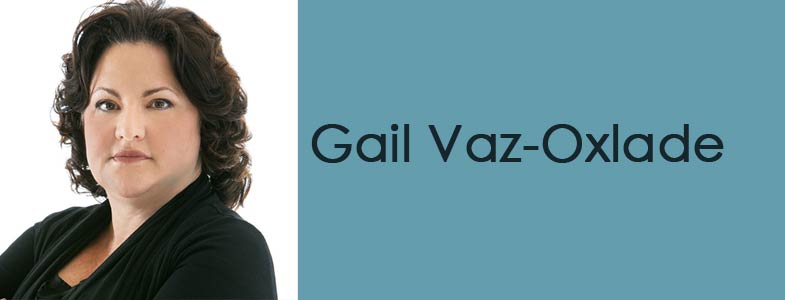
- Gail Vaz-Oxlade: Canadian personal finance expert and television personality known for hosting the Canadian television series “Til Debt Do Us Part” and “Princess.”
- Why should you listen to Gail Vaz-Oxlade?
- Gail Vaz-Oxlade is known for her straightforward, no-nonsense approach to personal finance. She provides clear, actionable advice that can be applied to your financial situation.
- She emphasizes the importance of budgeting and living within your means to achieve financial freedom.
- Gail Vaz-Oxlade encourages people to take responsibility for their financial decisions.
- She is well-known for her ability to connect with people and help people understand their finances and take control of their money. She has much experience doing this; she has provided financial advice for over 20 years and is considered a leading authority on personal finance in Canada. Her approach is relatable, and she shares her own experiences, which makes it easier for people to identify with her and her advice. She has a positive attitude and encourages people to focus on solutions rather than dwelling on problems.
- Gail Vaz-Oxlade strongly advocates financial literacy and educates people on managing their money and achieving financial freedom. She is passionate about financial literacy. She uses her TV shows as a tool for education and change: Gail Vaz-Oxlade has appeared on several Canadian television shows, including “Til Debt Do Us Part,” “Princess,” and “Money Moron.”
- What is Gail Vaz-Oxlade most frequently criticized about?
- Some people may not agree with her approach to managing debt, as she advocates for paying off all debts as soon as possible, which some people find hard to achieve.
- Some people may find her personality and style too direct and assertive or her advice unsuitable for people with lower incomes or those struggling financially.
- Some critics may argue that her advice is too focused on achieving financial freedom and less on enjoying life and spending money on things that make people happy.
- Some people believe that her advice is too focused on the Canadian financial market and may not apply to people in other countries.
- Why should you listen to Gail Vaz-Oxlade?

- Elizabeth Warren: American politician and former law professor is known for advocating consumer protection and personal finance education.
- Why should you listen to Elizabeth Warren?
- She has a deep understanding of the financial system: As a former Harvard Law School professor and as the former head of the Consumer Financial Protection Bureau (CFPB), Elizabeth Warren has a wealth of knowledge and experience when it comes to the financial system, consumer protection, and financial regulation.
- She advocates for consumer protection: Elizabeth Warren has been a vocal advocate for consumer protection and has worked to hold financial institutions accountable for their actions.
- Elizabeth Warren has proposed several policies to address economic inequality, such as a wealth tax on the ultra-rich and creating a public option for banking services. She is passionate about financial inclusion, promoting the idea that everyone should have access to the banking system and financial services.
- She has a history of taking on powerful interests, including Wall Street and large corporations and advocating for the rights of consumers and working families. She has a history of fighting for financial literacy and making financial education accessible to all.
- She has a strong understanding of the student loan crisis. She has been a vocal advocate for student loan reform and has proposed several solutions to the student loan crisis. She has advocated for fair credit practices, such as eliminating predatory lending and establishing a credit reporting system that works for all consumers, not just the wealthy.
- Elizabeth Warren has played a crucial role in creating the Consumer Financial Protection Bureau (CFPB), established to protect consumers from predatory financial practices.
- What is Elizabeth Warren most frequently criticized about?
- Some people criticize Elizabeth Warren for her strong emphasis on regulation and government intervention in the economy, while others believe that her policies are too far left and would be challenging to implement.
- Some critics argue that her plans for financial regulation would be too restrictive and harm innovation and competition; it could lead to increased government bureaucracy and stifle innovation. Some critics argue that her taxation and wealth redistribution policies would harm the economy. And from other perspectives, her advice is impractical and could not be implemented.
- Some people believe that her approach to student loan debt forgiveness and other social programs would be too costly and challenging to implement and argue that it would be unfair to those who have already paid off their student loans. I believe the latter argument is ludicrous, regardless of how actionable Elizabeth Warren’s theories regarding student loans are. If, with every change, we were to think how unfair it is to the wronged ones before, we wouldn’t advance much as a society, would we?
- Some people believe that her approach to the healthcare system is not feasible, would be too expensive to implement, and could lead to reduced access to care.
- Why should you listen to Elizabeth Warren?
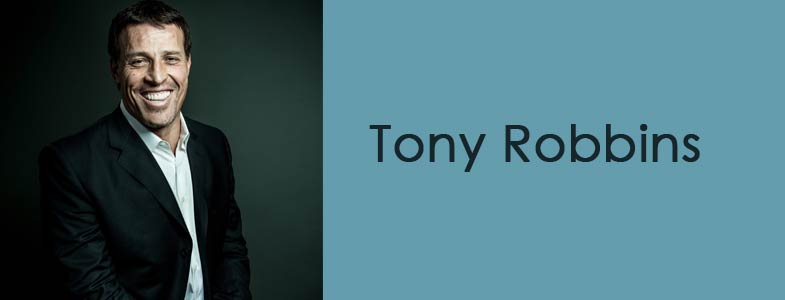
- Tony Robbins: American author, entrepreneur, and philanthropist known for his motivational speeches and books on personal finance and budgeting.
- Why should you listen to Tony Robbins?
- He has a holistic approach to personal finance: Tony Robbins encourages individuals to look at their finances in the context of their overall life and not just as a standalone issue. He emphasizes the importance of setting and achieving financial goals. He encourages people to set specific, measurable, and achievable financial goals and then develop a plan to achieve them. He encourages people to take control of their financial situation and take responsibility for their financial decisions.
- He emphasizes the importance of mindset and attitude towards money, which is crucial for achieving financial success. He is well-known for his ability to motivate people and help them achieve their goals. He encourages people to take action and consistent steps to achieve financial goals rather than just focusing on knowledge or theory.
- He emphasizes the importance of learning from failure: Tony Robbins encourages people to learn from their failures and to use them as opportunities to grow and improve.
- Tony Robbins is considered a master of personal development and has helped many people overcome limiting beliefs and self-doubt and succeed. He has provided personal and professional development advice for over 30 years and has worked with many individuals and organizations.
- What is Tony Robbins most frequently criticized about?
- Some critics may argue that his approach is too focused on positive thinking and ignores the reality of adverse situations. Other people criticize him for promoting a “quick fix” mentality and not addressing the long-term changes needed for sustainable progress.
- Some criticize him for lacking credentials in fields like psychology or finance. They say his advice is not backed by scientific research or evidence, and some criticize him for using controversial or aggressive tactics, such as walking on hot coals or submerging in ice baths.
- Some people may criticize his approach to personal development as focusing on achieving success at any cost rather than promoting balance and well-being. From their perspective, he is too focused on wealth accumulation and insufficient on financial literacy and education.
- Why should you listen to Tony Robbins?
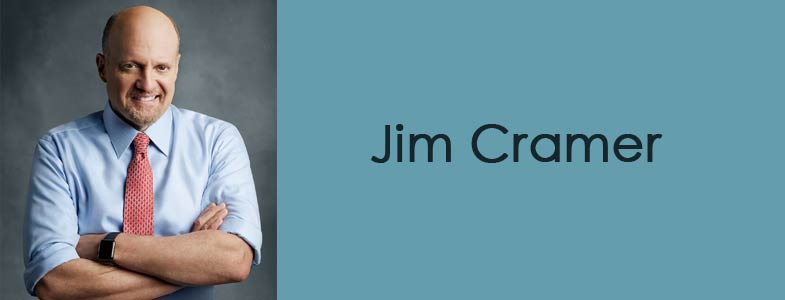
- Jim Cramer: American television personality, author, and former hedge fund manager, he hosts the financial advice show “Mad Money” on the CNBC network.
- Why should you listen to Jim Cramer?
- He has provided financial commentary and advice for over 20 years and understands the stock market and investment strategies. He provides a more unique perspective than other financial commentators and experts. He has a vast network of contacts in the financial world and can provide his audience with exclusive information and interviews with industry experts.
- He has much on-air experience, providing financial commentary on television for over 20 years, and has developed a reputation as a knowledgeable and experienced commentator. He has a large following of people who tune in to his television show, read his books, and follow him on social media, which gives him a broad reach and influence.
- Jim Cramer has written several books on personal finance and investing, providing in-depth analysis and recommendations for achieving success in the stock market.
- What is Jim Cramer most frequently criticized about?
- People criticize Jim Cramer for being too bullish and not warning investors about potential market downturns. They saw his approach as too focused on entertainment rather than providing informative analysis. Some people believe that his approach to personal finance is too focused on stock market speculation and not on financial education and literacy.
- Some people criticize Jim Cramer for his last time as a hedge fund manager and his past stock recommendations. They criticize him for not disclosing potential conflicts of interest, such as investments in companies he recommends on his show. They say he promotes a culture of stock market speculation rather than a long-term investment.
- Why should you listen to Jim Cramer?
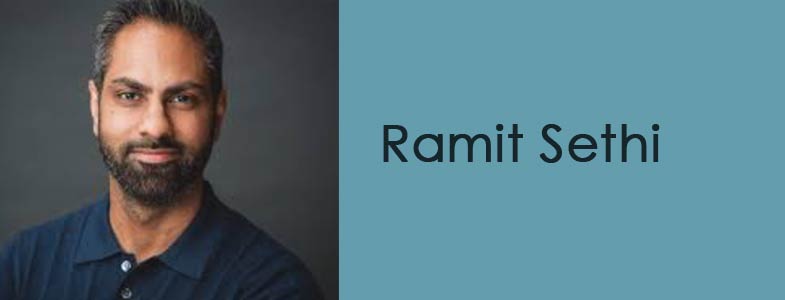
- Ramit Sethi: American personal finance advisor, entrepreneur, and author known for his book “I Will Teach You to Be Rich,” which focuses on budgeting and personal finance for millennials.
- Why should you listen to Ramit Sethi?
- He offers a comprehensive approach to personal finance, covering various topics, from budgeting and saving to investing and negotiating. He has a practical approach to personal finance; he emphasizes taking action and making minor changes to achieve financial goals rather than just focusing on theoretical concepts. He focuses on building wealth over time rather than just focusing on short-term gains.
- He has a large following; many people read his books and take his courses, which gives him a broad reach and influence. Ramit Sethi has written several bestselling books on personal finance, providing in-depth analysis and recommendations for achieving success with money.
- He is also well-known for his negotiating approach, an essential skill in personal finance. He promotes the idea of earning more and negotiating for a raise.
- He emphasizes the importance of automation in personal finance and investing and encourages people to invest in themselves by continuing their education and developing skills.
- What is Ramit Sethi most frequently criticized about?
- Some people criticize Ramit Sethi for being too focused on earning more money rather than saving and budgeting. His approach may be too focused on the upper-middle class and less relevant for lower-income people. Some may criticize him for not providing enough guidance and support for people with lower incomes or fewer financial resources.
- Some people believe his advice is too focused on the US market and may not be as relevant for other countries. And other people criticize his approach for being too focused on materialism rather than more meaningful goals.
- Why should you listen to Ramit Sethi?
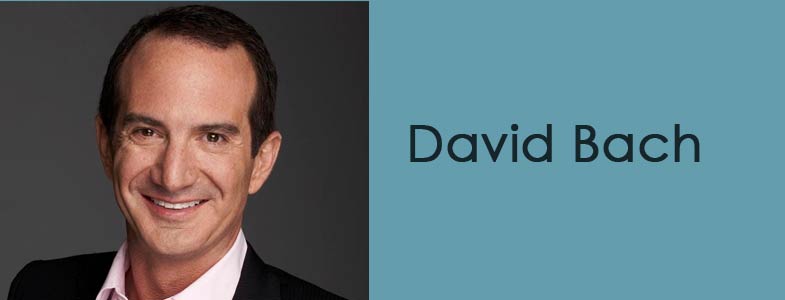
- David Bach: American personal finance author known for his book “The Automatic Millionaire,” which focuses on budgeting and saving.
- Why should you listen to David Bach?
- He is well-known for his concept of “The Automatic Millionaire” and “The Latte Factor,” emphasizing the importance of small daily savings. He is a proponent of automating savings and investing, which can help people save without thinking about it.
- He has been a frequent guest on several TV shows such as Oprah, the Today Show, and Good Morning America, and he is a New York Times best-selling author with multiple books on personal finance. He has a large following of people who read his books, attend his seminars, and follow him on social media, which gives him a broad reach and influence.
- He focuses on building wealth over time: David Bach emphasizes the importance of building wealth over time rather than just focusing on short-term gains. He emphasizes the importance of investing early in life to maximize the power of compound interest over time.
- He promotes living a balanced life, where people can enjoy the present while saving and investing for the future. He emphasizes the importance of having multiple income streams and building wealth through different investment vehicles.
- What is David Bach most frequently criticized about?
- Some people believe his focus on earning more and living below his means is unsuitable for low-income people.
- Some people criticize David Bach for promoting unrealistic expectations of financial success and say that his advice is too simplistic and not comprehensive.
- Why should you listen to David Bach?

- Jean Chatzky: American personal finance journalist, author, and television host known for her advice on budgeting and saving money.
- Why should you listen to Jean Chatzky?
- She has written several books on personal finance, including the best-selling “Money Rules: The Simple Path to Lifelong Security.” She has a solid social media presence and interacts with her followers, providing financial advice and answering their questions. She is the financial editor of NBC’s “Today” show, regularly providing financial advice to a broad audience. She has been featured in multiple media outlets, such as CNN, The New York Times, and Forbes, providing her financial advice to a broad audience. She receives numerous awards and accolades for her work in the personal finance field, including being named one of the “Most Powerful Women in Business” by Fortune Magazine.
- She strongly emphasizes entrepreneurship and small business ownership, providing resources and guidance for small business owners and entrepreneurs. She has a practical and relatable approach to personal finance that resonates well with many people. Jean Chatzky is committed to making personal finance accessible and understandable for all, regardless of their level of financial knowledge.
- She strongly advocates financial inclusion and educates and empowers people from all backgrounds to take control of their finances. She strongly emphasizes women and their financial position and provides resources and guidance.
- What is Jean Chatzky most frequently criticized about?
- Overall, she is well-received by the public, and in the industry, many financial advisors consider her a reputable and credible source of financial advice.
- Jean Chatzky’s advice is generally simple and easy to understand but not necessarily fundamental. She is known for breaking down complex financial concepts and making them easy to understand and apply. Her book, “Money Rules: The Simple Path to Lifelong Security,” is a perfect example; it is a comprehensive guide to personal finance that provides simple and actionable steps that readers can take to improve their financial situation.
- Why should you listen to Jean Chatzky?
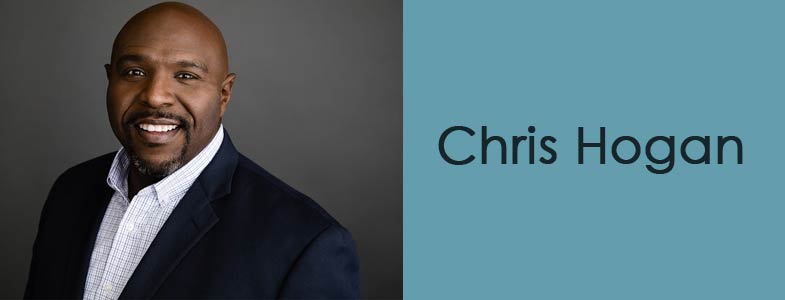
- Chris Hogan: American personal finance expert, author, and radio host known for his budgeting and retirement planning advice.
- Why should you listen to Chris Hogan?
- He is a #1 national best-selling author of “Retire Inspired: It’s Not an Age, It’s a Financial Number” and “Everyday Millionaires: How Ordinary People Built Extraordinary Wealth—and How You Can Too.” He has a solid social media presence and interacts with his followers, providing financial advice and answering their questions. He regularly contributes to various media outlets, such as Forbes, Business Insider, and Fox Business, providing financial advice to a broad audience.
- He is a Ramsey Personality, a team of financial experts who work with Dave Ramsey, regularly providing financial advice to a broad audience. Ramsey Personalities typically have a strong background in personal finance and are considered experts in their field. They often provide advice on budgeting, saving, investing, and paying off debt and are known for their practical and relatable approach to personal finance. They also often appear on Dave Ramsey’s show as guests to provide advice, answer listeners’ questions, and offer their perspectives on various financial topics.
- He has a personal finance podcast, The Chris Hogan Show, where he provides financial advice, tips, and strategies to millions of listeners. Chris Hogan is a regular speaker on personal finance at conferences and events and is dedicated to helping people improve their financial literacy.
- He strongly emphasizes entrepreneurship and small business ownership, providing resources and guidance for small business owners and entrepreneurs. He is committed to making personal finance accessible and understandable for all, regardless of their level of financial knowledge.
- He receives numerous awards and accolades for his work in the personal finance field, including being named one of the “Most Powerful People in the Financial Advising Industry” by Investment News. He is a national spokesperson for the National Retirement Planning Coalition and a member of the Financial Planning Association.
- What is Chris Hogan most frequently criticized about?
- From my research, Chris Hogan is generally well-regarded by his peers in the financial industry, and many people consider him a reputable and credible source of financial advice. However, I think it would be harder to find information from him related to financial assistance to low-income individuals and families, advice on how to access food assistance programs that can help low-income families, and how to access legal aid services to help low-income individuals and families.
- Why should you listen to Chris Hogan?

- Pete the Planner: American personal finance expert, author, and radio host known for his advice on budgeting and saving money.
- Why should you listen to Pete the Planner?
- Humor: Pete the Planner is known for using humor in his advice, which can make personal finance more approachable and relatable. Pete the Planner is known for providing a personal touch in his advice and making it relatable to his audience; he often shares his experiences and challenges with money.
- He covers various topics, including budgeting, saving, investing, and debt management. He has written several books and columns on personal finance, which can help readers look at this process from different perspectives.
- Pete the Planner hosts a popular radio show where he provides financial advice and answers listeners’ questions. He hosts a weekly podcast, which provides actionable tips and advice on personal finance, interviews with experts in the field, is involved in the community, and is often a guest speaker at events and conferences, where he provides advice and tips on personal finance. He often collaborates with other financial experts and advisors to provide diverse perspectives and advice on personal finance.
- What is Pete the Planner most frequently criticized about?
- I could not find frequent criticisms, but it may be because he is less popular than many of the personalities above.
- Why should you listen to Pete the Planner?
Some honorable mentions:

- Farnoosh Torabi: Farnoosh Torabi is a personal finance expert, journalist, and author who has written several books on personal finance and has appeared on various television programs and podcasts as a financial expert. She offers valuable information and advice on personal finance topics, such as budgeting, saving, investing, and managing debt. One thing that sets Farnoosh apart is her ability to make complex financial concepts easy to understand and relatable for her audience. This is evident in her books, articles, podcasts, and speeches. Additionally, Farnoosh has a unique way of looking at personal finance; she emphasizes money management’s psychological and emotional aspects, which she believes are just as important as the technical details. She also encourages people to take control of their finances and empower themselves to make intelligent financial decisions.

- J.D. Roth: J.D. Roth is a personal finance expert and blogger who has written about personal finance for over a decade. He founded the popular personal finance website Get Rich Slowly, featured in several national media outlets, and has helped many people learn about personal finance. J.D. Roth offers valuable insights and advice on various personal finance topics, such as budgeting, saving, investing, and retirement planning. His writing is known to be easy to understand and relatable, and he has a unique and practical approach to personal finance that can be helpful for those looking to improve their financial situation. Additionally, he is a New York Times bestselling author, and his book “Your Money: The Missing Manual” is trendy among readers. One thing that sets J.D. Roth apart is his unique and practical approach to personal finance. He is known for his ability to simplify complex financial concepts and make them easy to understand and apply to everyday life. He emphasizes the importance of taking small steps and making incremental changes to improve one’s financial situation, which is empowering and achievable for most people. J.D. Roth often uses data and statistics in his writing to back up his points and provide an evidence-based approach to personal finance.

- Trent Hamm: American personal finance blogger and author known for his advice on budgeting and saving money. His focus on frugality is one of the things that make him stand apart. He encourages readers to live below their means and make intelligent financial decisions. He provides practical advice on how to save money and reduce expenses. Another thing that sets him apart is his emphasis on goal setting. He believes setting goals is essential for financial success and provides readers with the tools and resources to achieve them. Trent Hamm is also well known for his transparency and honesty regarding his finances and journey to financial independence. He shares his financial successes and failures with his readers, which helps to build trust and credibility with his audience.

- Vicki Robin: American personal finance author known for her book “Your Money or Your Life,” which focuses on budgeting and money management. Vicki Robin is the co-author of the book “Your Money or Your Life,” considered a classic in the personal finance world. What makes Vicki Robin stand apart from other financial advisors is her holistic approach to personal finance, which includes money management and its psychological and emotional aspects. She helps people understand the underlying values and beliefs that drive their financial decisions and how to align their money with their values and goals. Vicki Robin is also a strong proponent of simplicity and minimalism in money management. She encourages her clients to simplify their financial lives, which can help them reduce stress and achieve financial peace of mind.
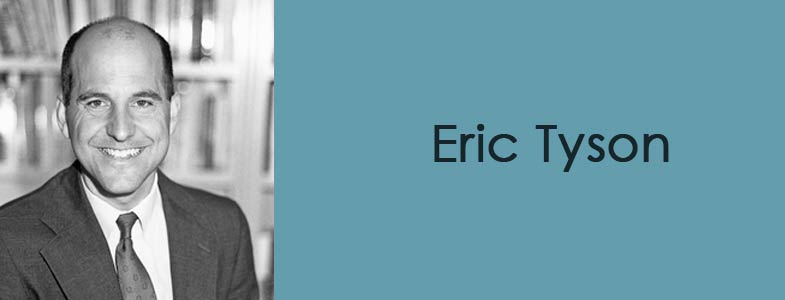
- Eric Tyson: American personal finance author and financial advisor known for his advice on budgeting and saving money. Eric Tyson has over 25 years of experience as a financial advisor, an MBA, and a CFP certification; he has helped many people achieve their financial goals. His experience and knowledge can be precious for those seeking advice and guidance on personal finance. He uses simple language, real-world examples, and practical tips that readers can easily understand and apply. Eric Tyson has written several books on personal finance, including “Personal Finance For Dummies” and “Investing For Dummies,” which are essential for anyone looking to improve their financial situation.

- Andrew Hallam: American personal finance author known for his book “The Millionaire Teacher,” which focuses on budgeting and investing for financial independence. Andrew Hallam emphasizes simplicity and minimalism when it comes to money management. He encourages his people to simplify their financial lives, which can help them to reduce stress and achieve financial peace of mind. Andrew Hallam has experience as a teacher, which allows him to explain financial concepts in a straightforward and easy-to-understand way. He uses real-world examples and analogies to help readers understand complex financial concepts and make them more relatable. Andrew Hallam strongly advocates low-cost index investing and encourages his clients to invest in low-cost index funds to achieve their financial goals. He believes that index funds offer the best returns over the long term while keeping expenses low.
This list is not exhaustive, and there are many more experts and professionals in personal budgeting and financial planning. Not all experts or professionals will be a good fit for everyone, so it’s always a good idea to research and find an expert whose advice aligns with your financial goals.
Choosing the Right Type of Financial Expert
When managing your finances, it’s crucial to understand that not all financial advisors are created equal. Each type of financial expert brings unique skills, services, and expertise to the table. In this article, we mainly focus on Financial Planners, but it’s essential to be aware of the other types of financial experts available, as your specific needs might be better served by a different advisor category. Here’s a breakdown of the four main types:
- Financial Planners: they offer the broadest range of services among financial experts. They can specialize in investing or estate planning or provide general financial advice. Their services range from preparing financial plans to selling financial products like annuities, stocks, bonds, and insurance. While we primarily cover Financial Planners in this article, remember that their qualifications and fee structures can vary widely.
- Registered Representatives: Also known as stockbrokers or investment consultants, Registered Representatives are licensed to buy and sell investment products, including stocks, bonds, and mutual funds. The scope of products they can handle depends on their licensing (Series 6 or Series 7). They are typically paid on a commission-only basis and are ideal for those looking to invest in specific securities.
- Registered Investment Advisors (RIAs) offer personalized investment advice and portfolio management services. They can manage assets on behalf of their clients but require a securities license to buy or sell securities actively. RIAs are regulated by the SEC or state securities agencies and adhere to high ethical and professional standards. They suit individuals seeking tailored investment advice and are compensated through commissions, hourly fees, or flat rates.
- Money Managers: they provide similar services to RIAs but with the added authority to make investment decisions without client approval. They are ideal for individuals with substantial investment portfolios, as they focus on selecting and managing investments based on the client’s preferences. Money Managers are typically compensated based on a percentage of their assets and are subject to the same regulatory standards as RIAs.
While this article primarily discusses Financial Planners, if your needs align more closely with the services offered by Registered Representatives, RIAs, or Money Managers, it’s advisable to conduct specific research to find the right expert for your financial situation. Remember, choosing the right type of financial expert is a key step in achieving your financial goals and ensuring your investments are in good hands.
Can Budgeting Apps Replace Financial Planners?
The question of whether budgeting apps can replace financial planners is complex and depends on individual financial needs and preferences. In personal finance management, the rise of technology has introduced various tools, including budgeting apps like Truebill and investment platforms like Acorns, which are often reviewed for their efficiency and user-friendliness. This Truebill review typically highlights its ability to track expenses, manage subscriptions, and offer insights into spending patterns. Similarly, the Acorns app review often praises its ease of use in micro-investing, where small amounts are automatically invested into diversified portfolios. These tools, along with other roboinvestors, provide convenience and accessibility that traditional financial planning services may not offer. They particularly appeal to those who are just starting to manage their finances or have straightforward financial goals.
However, the experience provided by a human financial planner is more personalized and comprehensive. Financial planners bring a deep knowledge and understanding of complex financial situations that an app cannot replicate. They can offer tailored advice based on an individual’s unique financial situation, goals, and risk tolerance. This includes tax, estate, and retirement planning, often requiring a nuanced approach.
Moreover, financial planners can adapt their strategies to changing life circumstances and market conditions, something that roboinvestors and budgeting apps might not do as effectively. The emotional aspect of financial decision-making, such as navigating market volatility or making big life decisions, is better managed with a human advisor who can provide reassurance and guidance.
While budgeting apps like Truebill and roboinvestors like those found in the Acorns app can be excellent tools for certain aspects of financial management, they are not comprehensive replacements for financial planners. Each serves a different purpose and caters to different needs. A human financial planner remains indispensable for those requiring detailed, personalized advice and a holistic approach to their financial life. For more straightforward, more automated tasks, budgeting apps and roboinvestors can be highly effective.
In conclusion, choosing the right personal finance expert can be daunting. Still, by understanding the qualities you need to look for, researching the background and experience of each expert, and being aware of the services they offer, you can confidently make the right choice for your specific needs. Remember that it is essential to consider an expert’s credentials and qualifications, experience and track record, philosophy and approach, reviews and testimonials, specialization, and communication style. Each expert has a unique personal finance approach, and it is up to you to decide which one aligns with your values and goals.
